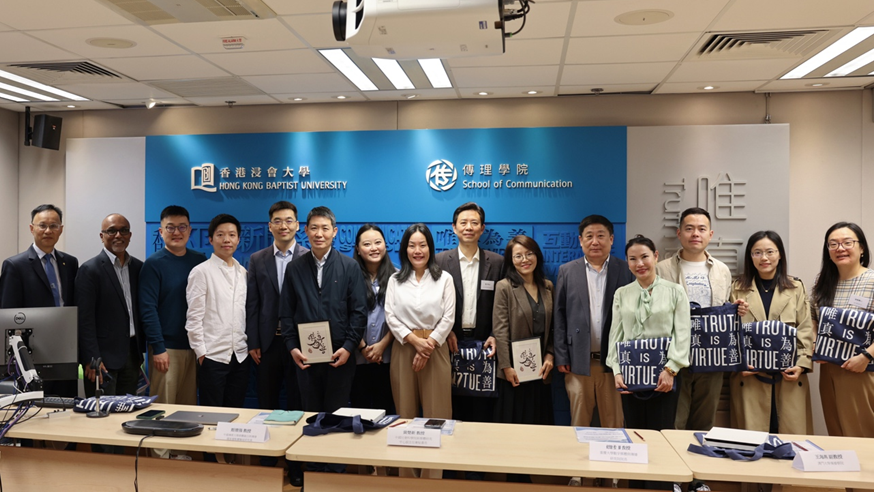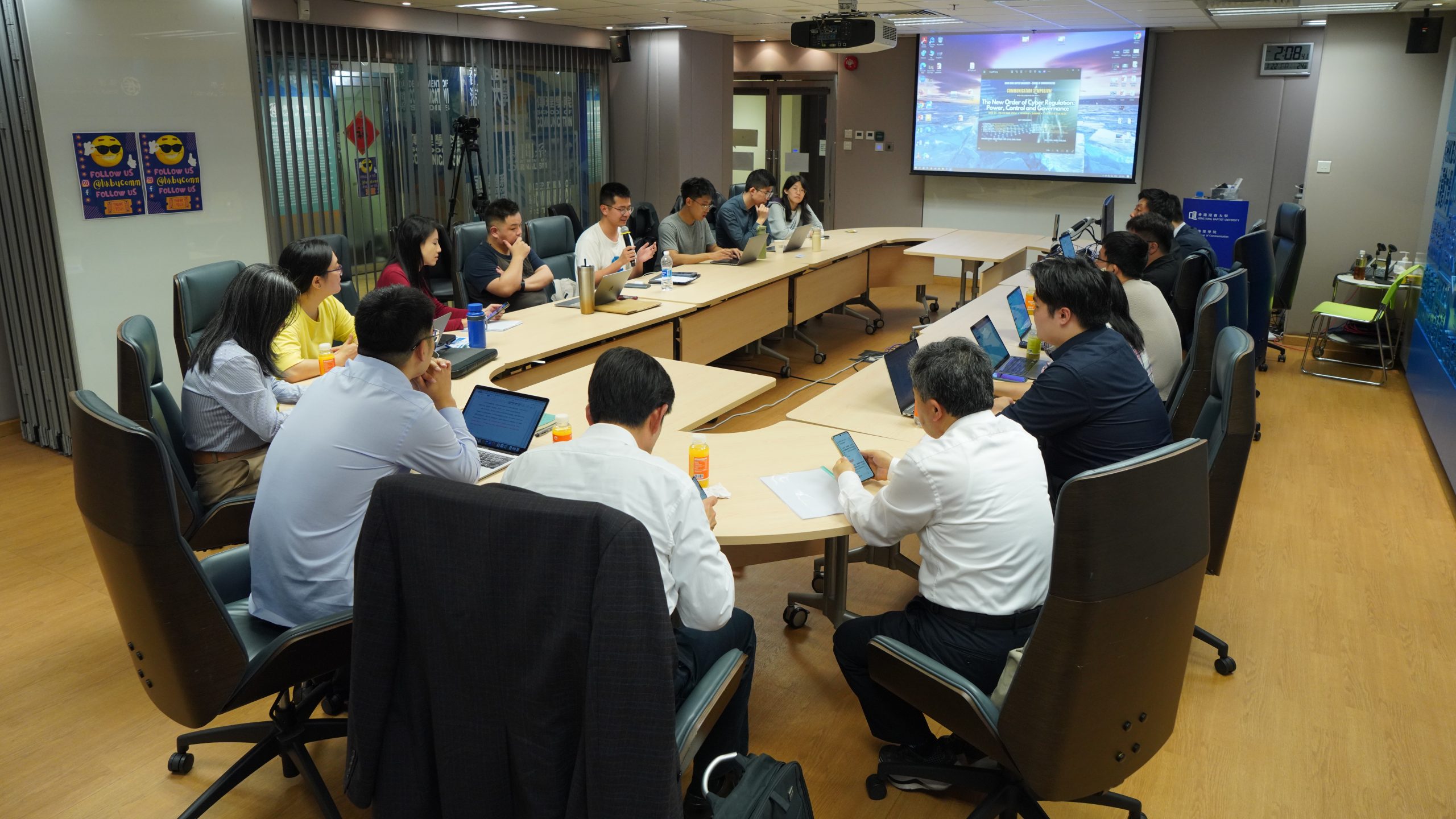Published: 2024-04-05
As new media technologies grow more ubiquitous and become essential parts of social life, majority have come to rely on them as primary sources of news and information. More people have also leveraged on the accessibility of internet and digital media platforms to become independent information vendors and content creators. This has resulted in a barrage of information disorders, creating a dilemma about how best to tame the unruly flow of information in digital media spaces. This was the crux of the discussions at a symposium organised by researchers at the School of Communication in March 2024.
 |
Invited speakers and organisers of the symposium |
The three-day symposium titled “The New Order of Cyber Regulation: Power, Control and Governance” brought together 12 senior researchers and eminent scholars from different Universities across Mainland China, Macau, and Hong Kong, including two members from the State Key Laboratory for Media Studies, to deliberate on the nuances of institutionalised moderation and regulation of cyber spaces within the context of China and Hong Kong and to discuss the current state of research on cyber regulation.
The symposium was convened by a team at the Department of Journalism led by Angela Wang, who is the principal investigator for a project, “Resistance to Cyber Censorship in China: An Inoculation Theory Approach”. Steve Guo was the co-investigator. The organising team also included Vincent Huang and Zou Sheng. They were supported by the Centre for Media and Communication Research, and the Communication-Media-Culture Funding Program Research Group.
The symposium attracted over 50 communication experts and researchers. The Dean of the School of Communication, Bu Zhong expressed delight at the timeliness of the symposium and emphasised on its aptness at a crucial time when debates are rife about concerns for cyber-security and control. “We are not just here to debate whether to regulate the internet, rather we are here to understand the subtleties of instituting these regulations in certain geopolitical climes and the analyses of communication scholars about this discourse” Zhong said.
The speakers at this symposium moved the conversation beyond the stark binary opposition of whether cyber regulations should or should not be instituted, to explore the complexities of legislated cyber-control and to focus on how the internet can be best censored to curb digital dissidence and disruptive cyber-activism, especially in and by authoritarian regimes. On the first two days of the symposium, the speakers expounded on the multidimensional power and governance directions in Mainland China’s platformized and data-driven society, from the perspectives of macro policy control, meso-level platform participation, and micro-level netizen engagement.
Focusing on the distinct socio-political settings of China and Hong Kong, the speakers expounded on how and why authorities adopt remedial measures and often resort to employing rhetoric devices that emphasize on unity, stability, and harmony to validate the beefing up of internet regulatory rules and laws, such as the Great Firewall of China. Although Hong Kong, on the other hand, experiences threats of intervention of the Chinese central government under the ‘one country, two systems’ policy, it continues to enjoy a more relaxed and democratic cyber-regulation, compared to the less-liberal mainland.
 |
A cross-section of doctoral students and the moderators at the PhD colloquium |
The third day of the symposium featured a PhD colloquium that attracted over 10 doctoral students from the Chinese University of Hong Kong, City University of Hong Kong, The Hong Kong Polytechnic University, Hong Kong Baptist University, and Tsinghua University, China. In a roundtable discussion moderated by Tian Yang, (School of Journalism and Communication, CUHK), and Zou Sheng, (Department of Journalism, HKBU), the students shared their current research surrounding the theme of the symposium and received useful feedback to improve their research.
Angela Wang noted that beyond the rich discussion generated at the event, the symposium has also yielded rewarding future research projects. “Conversations from this symposium, along with two expert interviews on media convergence will, hopefully, be published in a journal”, Wang enthused, “we are also bidding for a journal’s special issue that aligns with the theme of the symposium and we look forward to future collaborations on this theme with the speakers”.